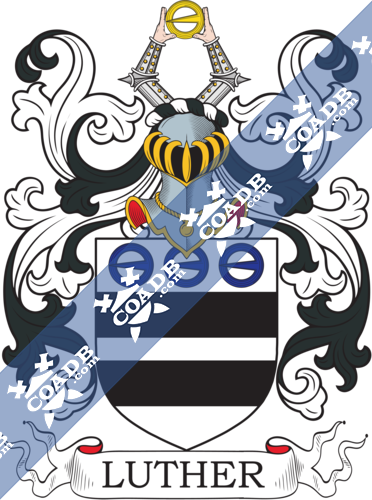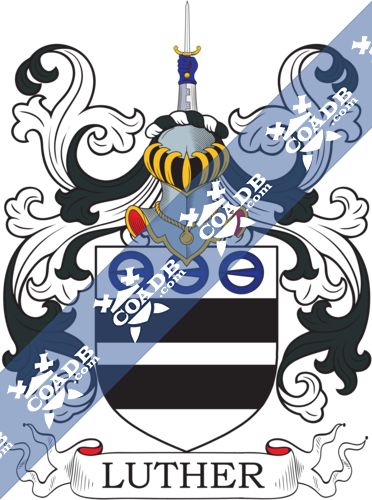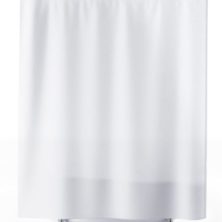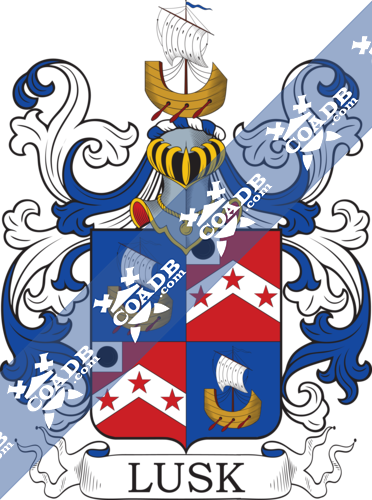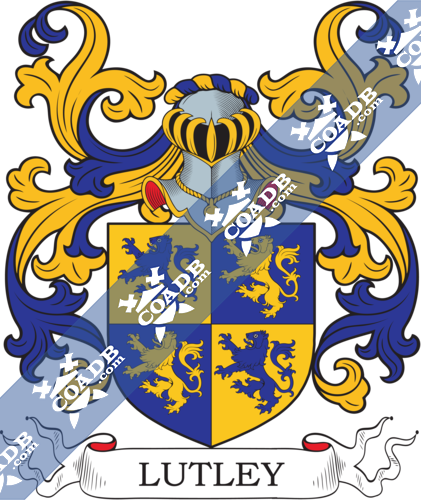Luther Family Crest, Coat of Arms and Name History
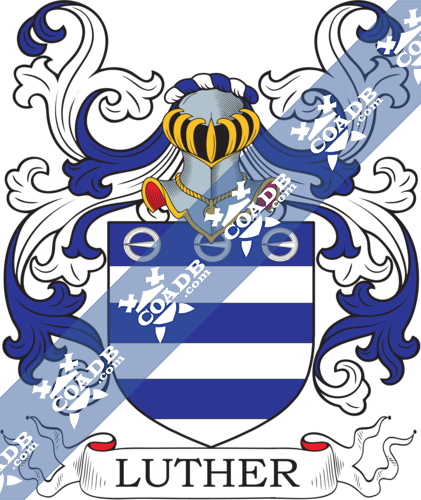
Luther Coat of Arms Gallery
Don’t know which Coat of Arms is yours?
We can do a genealogical research. Find out the exact history of your family!
Learn MoreLUTHER
Luther is historically a surname found in Germany, France, and to a lesser extent England. The names most basic origin comes from the Latin-Greek name(s) Eleutherius/eleutheros which translated to “free”. The Germanic form of the name is derived from the the personal name luitheri, a compound word which breaks down to “luit” which translates to people and “heri” which translates to army, in this context the name would be patronymic. The French derives from the word “lutier” which translates to mean someone who plays the lute, in this context this name would be considered occupational. The English derives from the midieval word “lither” which translates to mischievous.
There often exists variations in spelling of many surnames, as with many given names which date back to the early centuries. The variation in spelling of both given and surnames during this time period can be attributed to a lack of continuity regarding guidelines for spelling which was compounded by the diversity of languages in use in European countries at this time. The variations in the spelling of the surname including but not limited to; Luther; Luethi; Leuther; Lueders; Lueder; Luter; and Lutter.
Surnames in Britain prior to the Norman conquest were largely unheard of. In the small settlements and villages which existed during earlier times, residents found little need for surnames as everyone in these communities new each other and a given name would usually suffice. However, with the passage of time, population growth and expansions of communities as villages gave way to towns and cities, it became necessary to add a qualifier to a people’s names to distinguish them, one from another. Therefore one person may have been identified by their given name plus their occupation while another may have been identified by their given name and one of their parent’s names. The introduction of surnames by the Norman aristocracy after the invasion seemed to be the next logical step in this evolution. There was a boundless supply from which surnames could be formed, in addition to the use of patriarchal/matriarchal names or reference to the individuals occupation, there were things such as defining physical traits, a familiar geographical location or a topographical landmark found near the individuals home or birthplace, the name of the village in which the person lived.
The practice of using surnames also had an additional benefit, as it allowed the government to keep more detailed taxation, census, and immigration records. One of the earliest recorded spellings of the name, William Leluter, is found in the Essex tax rolls dated 1130. The tax rolls which hold the distinction of being the oldest consecutive set of records detailing English governance in the United Kingdom date back to the 12th century.
One of the first recorded immigrant to America bearing the surname or any variation of the spelling was Grace Luther who arrived in 1670 and settled in Maryland. Samuel Luther landed and settled in New England in 1685 and John Luther arrived and settled in Virginia in 1698.
There were also immigrants to the British Common Wealth country of Canada bearing the surname. Seth Luther landed in 1760 and settled in Nova, Scotia, Canada.
Worldwide, the highest concentration of people with the surname Luther are found in Germany, the United States, Ireland, Denmark, Switzerland, and Canada. By state, the largest percentile of those with the surname Luther live in Alaska, Nebraska, North Carolina, and Vermont.
There are many persons of note who bear the surname Luther. Probably one of the most widely recognized is German born composer, priest, monk, professor of theology, and pioneering figure in the Protestant Reformation, Martin Luther. Luther original career choice was law, however, after beginning his studies he realized his true passion was theology and religion causing him to switch majors. Luther was awarded his Doctorate of Theology in October of 1512. In the same month and year he was also received into the theological faculty of the University of Wittenberg, where he spent the remainder of his career.
Luther is one of the first persons to translate the Bible into common vernacular as opposed to the traditional Latin, in doing so, it became possible for a greater parentage of the population to have access to the Bible for their own interpretation. This was one of Luther’s tenants relating to the Reformation of the Christian Church.
Luther’s call for reform within the church marked him as a heretic resulting in his excommunication and the formation of the Protestant religion. It also sadly sparked the thirty Years War, which was one of the bloodiest conflicts in human history. His marriage at age forty one, was the first marriage of a protestant clergyman, and his wife Kattarina Lutterin advised Luther in his role as a member of the clergy and leader of the Lutheran church, who in turn became one of the first female brewmeisters, in Germany. Kattarina Lutterin-Luther ran the former Augustinian estate John Frederic the Elector of Saxony left to Martin Luther for his religious reforms. The couple also had six children of whom one died in infancy and one at the age of thirteen years. His male line descendants died out in 1759, however through his daughter Maria Luther, the family has survived to modern times, with many notable and noble German families sharing in Martin Luther’s ancestry, to include Paul von Hindenburg being chief among them and the Counts of Eulenburg.
Blazons & Genealogy Notes
1) (Carrickfergus, co. Antrim; confirmed by Preston, Ulster, 1639, to Roger Lyndon, Mayor of that Town, second son of Robert Lyndon, co. Somerset). Sa. a mural crown or, betw. three leopards’ faces ar. Crest—A sea dragon volant vert, armed and langued gu. murally gorged or.
2) (co. Somerset). Sa. three leopards’ faces or, (another, ar.). Crest—Five arrows, one in pale and four in saltire, banded and buckled ppr.
3) Az. a mural crown betw. three leopards’ faces ar.

